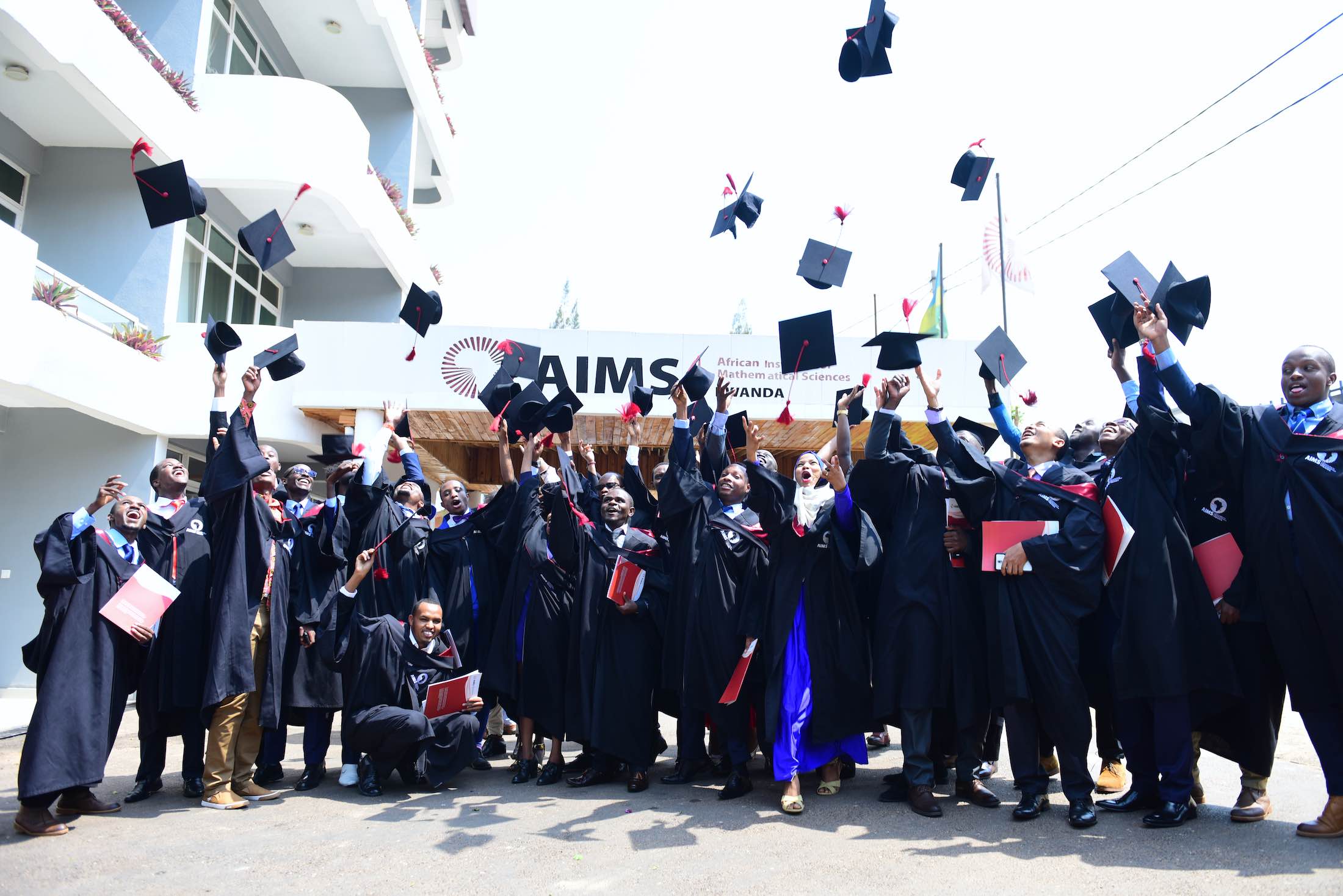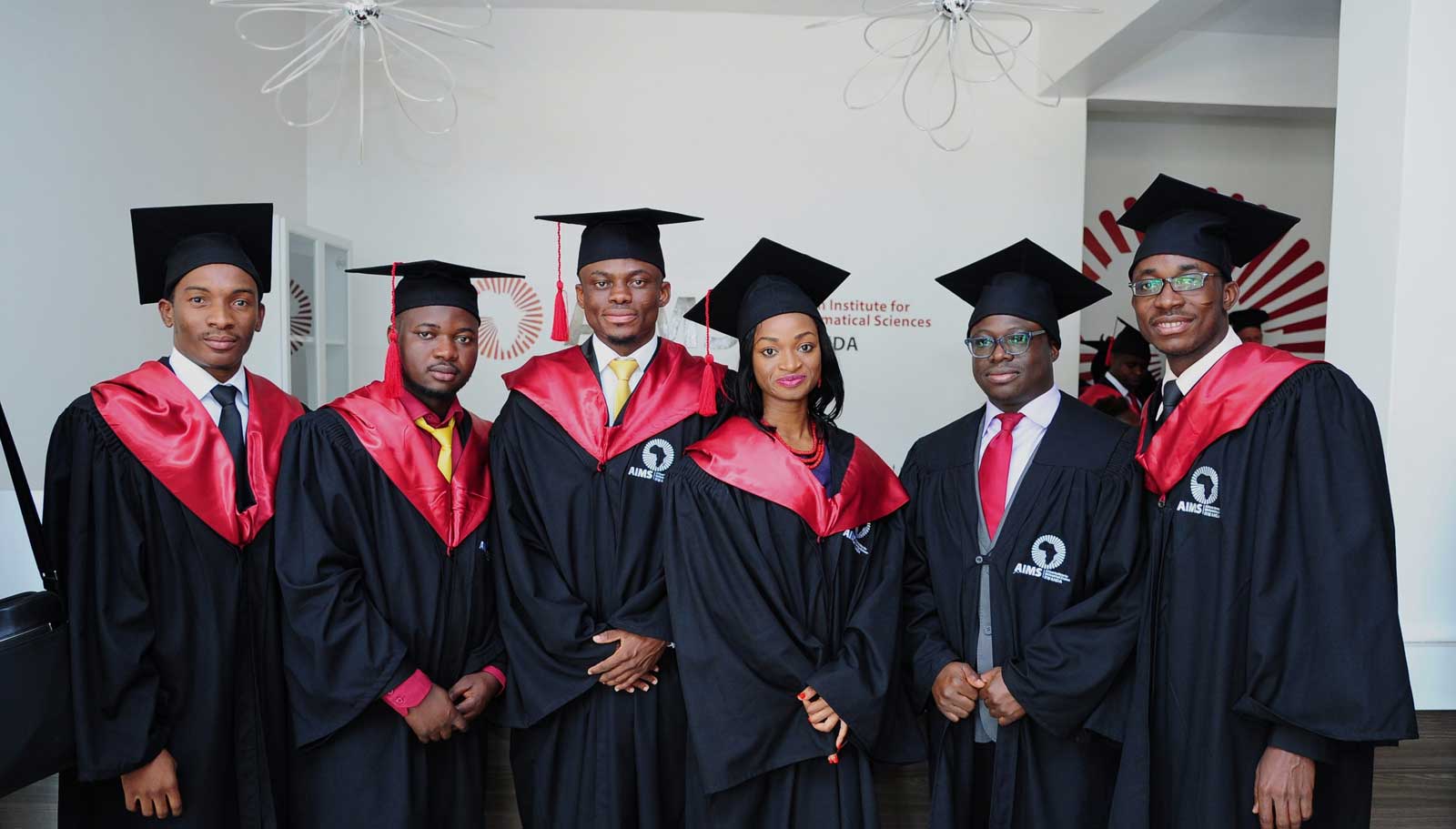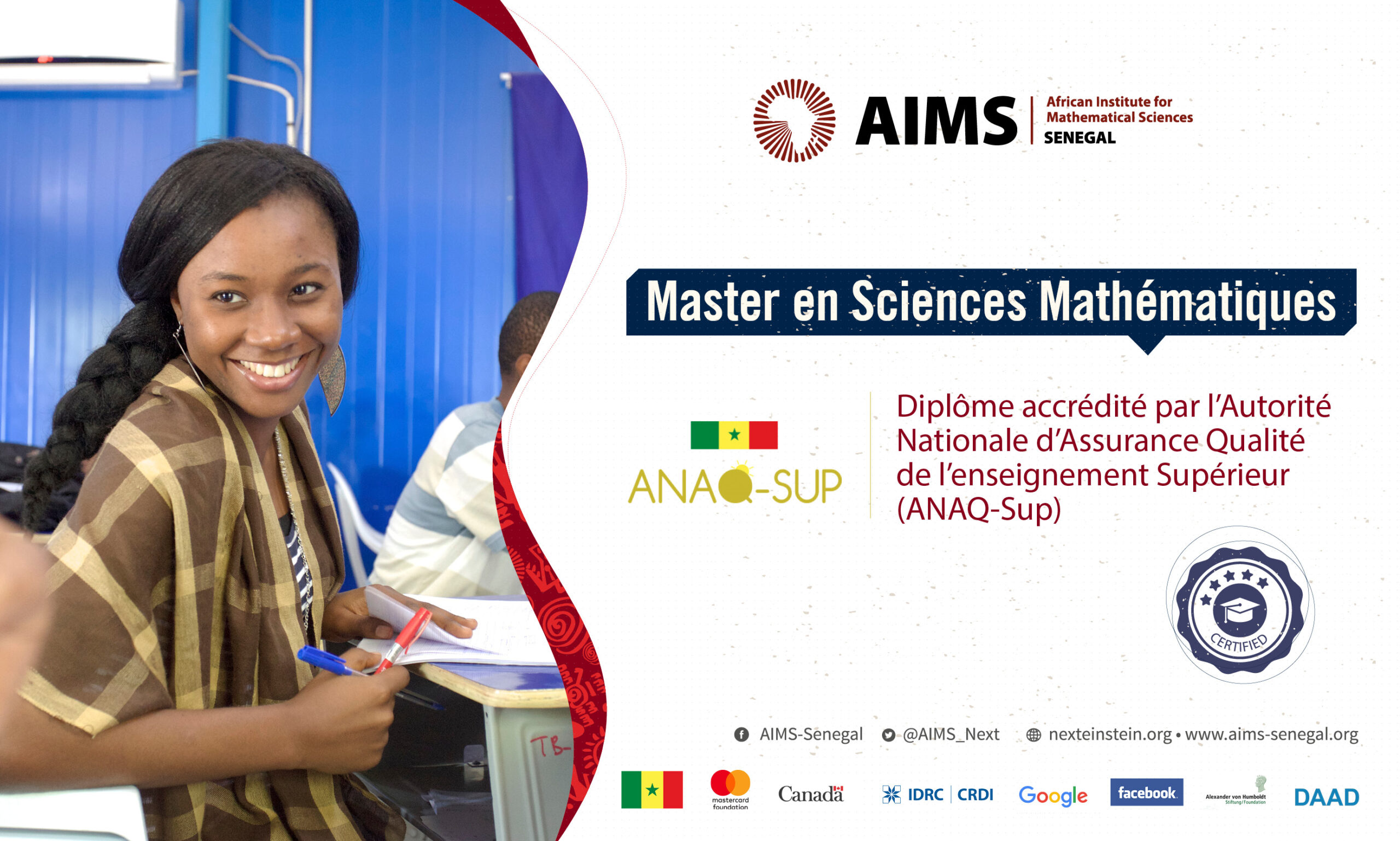
About AIMS Senegal
Established in 2011 with the support of the government of Senegal, AIMS Senegal is the second Centre of Excellence to be created under the AIMS Global Network (AIMS Next Einstein Initiative). AIMS Senegal offers a Master’s in mathematical sciences through:
- A Structured 10-month research-oriented program
- An 18-month Co-operative (Co-op) Education program with a direct link to industry through work placements
- The African Master’s in Machine Intelligence (AMMI)
The AIMS Senegal Master’s in mathematical sciences is accredited by the National Authority for Quality Assurance in Higher Education (ANAQ-Sup), Senegal. Since its inception, AIMS Senegal has graduated over 400 students.
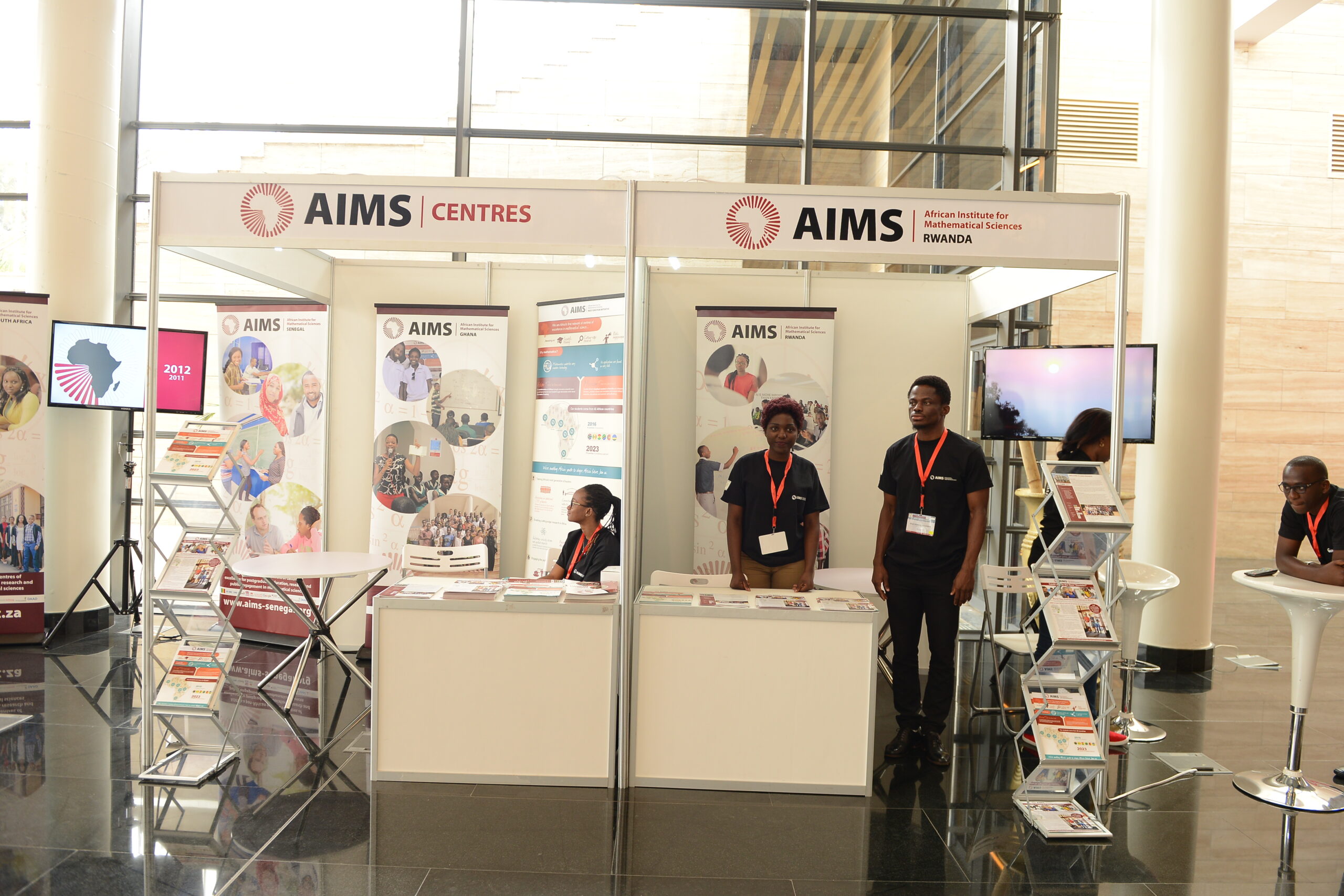
AIMS is a call to action to:
- Invest in STEM education for the advancement of development in Africa;
- Increase collaboration between the public and private sector to prioritize STEM education in Africa;
- Encourage policymakers to push the Agenda of STEM education in Africa for the transformation of and sustainable growth of the continent, especially as pertains to increasing the number of women in the STEM fields;
- Get Africa’s most talented students to pursue an education in mathematical sciences to innovate and further propel Africa’s future;
- Increase partnership with industry to fill the gap in STEM, increase productivity and provide critical skills that are indispensable as Africa embarks on its industrial revolution.
About AIMS
The African Institute for Mathematical Sciences (AIMS) is a pan-African network of Centres of Excellence for postgraduate training in mathematical sciences, research, and public engagement in Science, Technology, Engineering, and Mathematics. Founded in 2003 in South Africa by acclaimed physicist Prof Neil Turok and later replicated in Senegal, Ghana, Cameroon and Rwanda, AIMS is leading Africa’s socio-economic transformation through:
• Innovative scientific training (the development of human capital);
• Technological advances and cutting-edge scientific discoveries; and
• Public engagement for the continent’s scientific emergence.
Africa’s youth are at the heart of the AIMS innovation and transformation ecosystem which consists of a set of academic and non-academic programs expertly tailored to provide AIMS learners with a unique postgraduate training experience on the continent.
AIMS offers a Master’s in mathematical sciences, including a co-operative option with a direct link to industry, the African Master’s in Machine Intelligence (AMMI), as well as research programs, with over 100 researchers conducting studies across the network. In addition to the AIMS Industry Initiative and a gender-responsive Teacher Training Program currently implemented in Cameroon and Rwanda, AIMS equally created two critical initiatives: Quantum Leap Africa, a think tank looking into the coming quantum revolution and the Next Einstein Forum to propel Africa on to the global scientific stage.
Our Values
EXCELLENCE
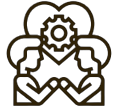
EQUITY AND INCLUSION
PAN-AFRICANISM
INTEGRITY
Vision
Our vision is to see a prosperous Africa, propelled by innovative education and mathematical science.
Mission
Our mission is to empower talented young Africans to be creative leaders in science and technology.
The AIMS Model
The AIMS model is unique in its pan-African character, broad curriculum, focus on independent critical thinking, inclusion of modern computational techniques and research components. AIMS identifies top African graduates and provides them with a world-class education in mathematical sciences, enabling them to pursue careers in research, industry and civil society. Students benefit from full scholarships, continuous access to computing, internet and electricity, close interaction with full-time tutors and visiting professors, as well as exposure to English and French. Endorsed by NEPAD, the African Union and TED as an idea big enough to change the world, this model has been refined and proven at five AIMS Centres of Excellence in South Africa, Senegal, Ghana, Cameroon, and Rwanda, with over 2200 graduates transitioning into careers all over the globe in data science, education, entrepreneurship, ICT, and research, among other domains.
